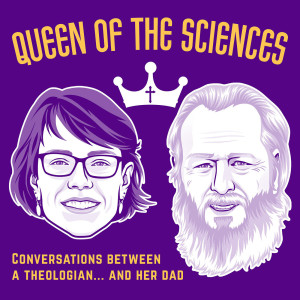
Tuesday Oct 08, 2019
The Martyrdom of Perpetua and Felicitas
In this episode we revisit the early church, earlier even than Athanasius in fact, to gaze upon the martyrdom of Perpetua and Felicitas... only to discover Perpetua gazing right back at us, with an unbearable intensity. This early martyr story is extraordinary and powerful in its own right, but it also touches on a lot of neuralgic issues for our society today, and ultimately confounds all our attempts to claim any identity for ourselves than the one Perpetua claimed: christiana.
In other news, we're nearing the end of our first season! Drop us a line or leave a comment here to let us know what you liked and what you didn't, questions or follow-up, and suggestions for next season's topics. Also, don't forget to leave us a review on iTunes (or Apple Podcasts as I guess we're supposed to call in now) and tell a friend about the show!
1. The Passion of the Holy Martyrs Perpetua and Felicitas
2. Dad talks about this story in Beloved Community, pp. 87–93
3. Karl Barth said Nein! (“no”) originally to natural theology (and Emil Brunner), but you can borrow it whenever heresy rears its ugly head.
4. For more on the theological evaluation of Montanism and how Perpetua, Felicitas, and Tertullian fit into the story, see Cecil M. Robeck’s Prophecy in Carthage.
5. “He descended into hell” appears in the Apostles’ Creed, the Latin of which is uncertain: either ad infernos (“to hell”) or ad inferos (“to the underworld”). The idea draws on I Peter 3:18–20: “For Christ also suffered once for sins, the righteous for the unrighteous, that he might bring us to God, being put to death in the flesh but made alive in the spirit, in which he went and proclaimed to the spirits in prison, because they formerly did not obey.”
6. For more on the sacrificed children in Carthage, see Jon D. Levenson’s The Death and Resurrection of the Beloved Son (highly recommended anyway—a phenomenal book)
7. Augustine’s three sermons on the feast day of Perpetua and Felicitas
8. You can get a summary by Elizabeth A. Goodine of contemporary academic studies on Perpetua at the World Religions and Spirituality site.
9. Sojourner Truth, “Ain’t I a Woman?”
10. J. Louis Martyn in his commentary on Galatians 3:28 translates the clause “there is no ‘male and female’” (and rather than or). He argues that the author of the formula (possibly not Paul) drew upon Genesis 1:27, thereby saying that “in baptism the structure of the original creation had been set aside” (p. 376).
More about us at sarahhinlickywilson.com and paulhinlicky.com!
No comments yet. Be the first to say something!